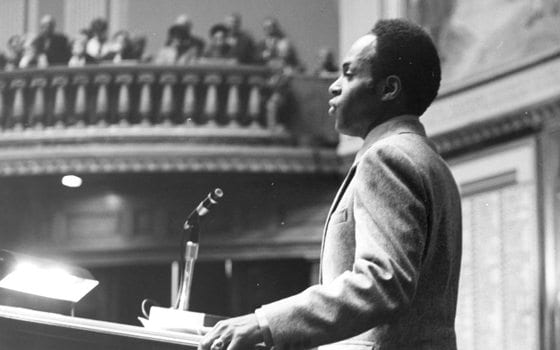

Massachusetts lost a great lawyer and judge last Thursday, March 12, 2009, with the premature passing of U.S. District Judge Reginald Lindsay. He was only 63 years old.
Judge Lindsay was the second African American to serve on the Federal District Court of Massachusetts. David Nelson, a Boston native, was the first.
Both had extraordinary careers, and I would like to reflect for a moment on the deep voids created by their deaths and the significant contributions both made during their lives.
Judge Lindsay’s predecessor, Judge Nelson, was a graduate of Boston College and Boston College Law School. He was one of the warmest and most humorous persons I have ever met and served on the federal district court after being appointed by President Carter in 1979.
Judge Nelson was highly regarded by his judicial colleagues and quickly established a well-earned reputation for excellence and fairness that Judge Lindsay continued during his tenure. Although Judge Nelson ran unsuccessfully for several Massachusetts political offices, he was known and respected as someone deeply committed to the residents of his home state.
Reginald Lindsay graduated from Morehouse College in 1967. He enrolled immediately at Harvard Law School, and was among the first cohort of African Americans in the late 20th century to graduate from Harvard in 1970.
Judge Lindsay was born in Birmingham, Ala., in 1945 and grew up in the deeply segregated South during the pre-civil rights era. Many public facilities, from water fountains to restaurants to hotels to schools, were still legally segregated by race.
Yet despite enduring all of the indignities and disadvantages of being treated as a second-class citizen by the state and society, Judge Lindsay defied the odds, overcoming structural and legal barriers to rise to the highest levels of the legal profession.
I had the great pleasure of working with Judge Lindsay over the course of several decades. We collaborated on several cases when he was a partner at the Boston law firm Hill and Barlow, along with other luminaries, including Gov. Deval Patrick and attorneys Lisa Goodheart and Michael Weisman.
I was always impressed with Judge Lindsay’s meticulous knowledge of details, his keen legal insight and analysis of complex issues. He also had a wry sense of humor, which I particularly appreciated.
He toiled longer and harder than anyone else, always making sure that every detail was covered and every aspect of the case thoroughly evaluated. It was this sense of judgment, care and detail that so impressed President Clinton when he appointed Judge Lindsay to the federal court in 1993.
For the past 16 years, he served the court and the public with distinction. He was respected and admired by his judicial colleagues, and by lawyers working on opposing sides of legal issues and cases.
Most important, all those who walked into Judge Lindsay’s courtroom recognized that he would treat them fairly, and with dignity and respect. In my mind, it is those latter qualities that elevated him to true greatness as a judge.
With the recent retirement of Joyce London Alexander, the longest-serving magistrate judge in the history of the U.S. District Court in Massachusetts, the lack of African Americans on state and federal benches has become even more glaring. Sadly, that retirement and Judge Lindsay’s loss leave Massachusetts without a single African American serving in the federal courts.
There are two different ways to view Judge Lindsay’s home state of Alabama. On the one hand, Alabama is the state where Rosa Parks was arrested on Dec. 1, 1955, for refusing to give up her seat on a bus, and where four little girls were brutally murdered at the 16th Street Baptist Church on Sept. 15, 1963.
On the other hand, Judge Lindsay’s home state of Alabama has actually made progress in appointing African Americans to the bench. In 1993, when Judge Lindsay became only the second African American appointed to the federal court in Massachusetts, two Alabama judges — Myron L. Thompson and U.W. Clemon — had already been appointed to the federal bench in 1980 by President Carter.
While Justice Roderick Ireland was appointed as the first and only African American judge to the Massachusetts Supreme Judicial Court, in Alabama, Justices Oscar William Adams Jr., Ralph Delano Cook and John Henry England Jr. were appointed to the Alabama Supreme Court.
Massachusetts has been a pioneer in electing African Americans to prominent positions. We elected the first African American U.S. senator since Reconstruction, Edward Brooke, in 1966. Forty years later, we made Deval Patrick the second African American ever to become governor of a state. We are justifiably proud of this record.
Yet our progress in making appointments of African American judges has lagged behind other states — most notably, and surprisingly, Alabama. Judge Lindsay and Judge Nelson have been trailblazers here in Massachusetts. We must not just continue, but accelerate, the progress that was made during their judicial careers.
Charles J. Ogletree Jr. is the executive director of the Charles Hamilton Houston Institute for Race and Justice at Harvard Law School. His most recently book is “When Law Fails: Making Sense of Miscarriages of Justice,” published in January by New York University Press.






